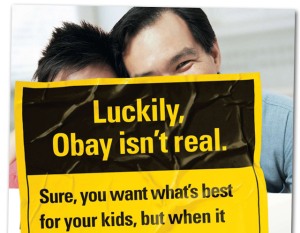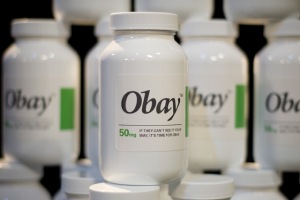Subject: FW: Dinner and Insights with Princess Zahra Aga Khan**
Date: Tue, 27 May 2008
SENT AS RECEIVED
Dear friends and family,
On the evening of Tuesday, May 13, 2008, I had the honour and pleasure of attending a lecture given by Princess Zahra Aga Khan at the Harvard Graduate School of Education on “Teaching and Learning in the Developing World”, followed by a special reception, followed by an intimate dinner hosted by the House Masters of Lowell House (Princess Zahra’s former House affiliation while she was at Harvard from 1990-1994) for 20 of us students and a few faculty members.
It was a strange and wonderful coincidence that a few weeks ago, my roommate brought Prof. Diana Eck (one of the Lowell House Masters) as her guest to the Kirkland House Student-Faculty dinner, and we wereall sitting around the same table, when amidst the light dessert chatter, Prof. Eck learned that I was Ismaili, and then told me about Princess Zahra’s imminent visit. I was so delighted to hear about it -and gushed excitedly about the extent to which I had admired the Princess since I was a child, naming my little sister after her even before she was conceived. To this, Diana replied, “Well then, you should absolutely be there for the dinner we’re hosting afterwards”, and after talking with Ali Asani, it was arranged that 3 of us Ismaili undergrads would be invited to the dinner -shukar for this opportunity.
It was a magical evening for me and I don’t intend on telling a bland narrative here of the form “this is the sequence of things that happened”. Upon completing this story though, I find it does not do the experience justice, and so I apologize for my shortcomings in being able to re-conjure the experience quite accurately.
Princess Zahra is such a lovely, intelligent, charming, down-to-earth, self-effacing, gracious leader and role model -really, one of the most beautiful women I have ever met in my life! The lecture began around 5:40 pm -Professor Ali Asani gave a fabulous introductory speech, talking about mentoring, advising and teaching Princess Zahra while she was doing her undergrad here in Development Studies (relating to Economics). Princess Zahra then gave Ali Uncle a hug, before moving to the podium, where she talked about building educational capacity and infrastructure through the Social Welfare Department of the AKDN, of which she is the Head.
There was a slide show as she looked at 4 case studies, focusing on the importance and centrality of Quality, Relevance, Access, and Cultural Ownership in providing education in Africa (Tanzania, Kenya and Uganda), Pakistan, Central Asia, and then the madrasa school system in Africa again (with very young children, I believe it was kindergarten). She talked a lot about the importance of promoting critical thinking in the schools, the education of women as vital to their social engagement and empowerment, which would in turn promote civil society, about the tensions between access and quality, and global citizenship versus local cultural relevance in building local, national and international knowledge societies, as well as the positive role of pluralism in all of these. These though are the highlights of the talk. During the Q&A, some people got up and said some very inspiring things, relaying personal anecdotes of their own education from K to University right through the AKDN’s projects, and the Princess was visibly moved, glowing, beautiful, smiling, possibly tearing -it was so touching. She really really really loves what she does -that was clear indeed.
For more, see: http://www.news.harvard.edu/gazette/2008/05.15/11-education.html
Although the reception was a delightful gathering of a few local Ismailis, professors and other such-and-such affiliates, and there were delicious appetizers to nibble at, I did not accost the Princess there because I knew I would be meeting her later. I instead partook of the fried scallops, mozarella stuffed baby tomatoes and sushi that had been laid out, as well as the conversation of my fellow lucky-ones.
Later.
Diana and Dorothy -the generous and gracious hosts and House Masters at Lowell -welcomed a bunch of us warmly into their residence. We> were all mainly undergrads (from second to fourth year students, with varying social and academic interests) and a couple of professors were also there. When Princess Zahra entered with Ali Asani, she was relaxed and radiant (if she was tired, which she later claimed since it had been quite a busy day, she did not look it at all!), and had taken her long hair down, and went around our horseshoe formation to shake our hands and allow us to introduce ourselves. I was the second-to-last person, I said my name and year and that I was Ismaili and she had smiled so lovingly, and then before much more could be said, Diana said, “Naila actually named -is it okay if I tell her this (to me) -her sister Zahra, was it when she was born?” to which I replied, “Before she was born”, to which the Princess with a graceful sense of humour replied, “Well, it’s fortunate then that your parents had a daughter!” and smiled so pleasantly again.
At dinner, I was sitting 4 seats away from her. She talked a bit about how “the food had changed” since she was in Lowell House, and nostalgically remembered taking part in some of the European language tables in the dining hall while she was here, the Italian Table in particular (language tabling is when every so often, anyone who speaks the same foreign language eats their meal around one of the tables and speak only that language during the meal -a good way to> practice whatever you learn in class right 😉 and then listening to> the updates from the House Masters about “improvements” to everyday student life in the houses, namely extended hours for the dining hall for students to study, and the availability of coffee all the time, wishing she had these when she was here.
We went around the table then, telling her a bit more about ourselves. I mentioned my work in history of science and interests in history of medicine, as well as the fact that I’m going to med school at McGill next year, dropping in my dilemma about pursuing an MD-PhD, with the doctoral work being in history of medicine, and how that> might be useful in serving in the developing world later in life, to which she responded that one of the classes she found to be most useful to her in the real world and in her work was a history of medicine class she had taken with a visiting Professor from Australia while she was at Harvard, and that history of medicine is really important because it goes to the heart of a lot of the problems that healthcare structures as well as other social infrastructures might have and that AKDN deals with all the time, but preemptively and thus, valuably. It was quite inspiring to hear her say that. Throughout the introductions, she really emphasized the importance of pursuing what you love and to pursue things that you’re passionate about, and if it’s a specific academic interest that you’re passionate about, pursue it because not anyone will and can.
It was really touching to hear about her personal story, that when she was younger (13 she might have said), she was really interested in Geology, but with his own vision of his daughter’s role in his institutions, her father encouraged her to pursue an area of study relating to the development of education and healthcare -so amazing to hear about Hazir Imam’s humanity, a glimpse into what he was like as a father, and how he saw his daughter fitting into his vision for development through AKDN. Another Ismaili student present remarked to me afterwards how cool it was that Hazir Imam originally wanted to go into science, but was discouraged by his grandfather, who told him to study history -and now he was doing a similar thing with his own> daughter. And the significance of that advice coming from the Imam, even if it was your father or your grandfather, was not lost on you. One got the sense that maybe the Princess didn’t have as many choices and options to do whatever she wanted, but that she really made the most of what her options were, and grew to love them, and become very passionate and very dedicated to those interests. It was so inspiring.
Then some amazing magic tricks were performed by a guy who just got back from traveling in Iran and Bosnia, performing with Magicians Without Borders (for reals. yeah it actually exists) -where enjoyment of entertainment / “the arts” (if you would call it that) can sort of transcend cultural barriers / differences / misunderstandings. The Princess was a wonderful sport about all of the tricks and seemed to really enjoy them (fun card tricks as well as the levitation of random objects. optical illusions are cool). Back to serious discussion, over some cheesecake with strawberries. Princess Zahra was eased into it though. Professor Eck first asked her about a ‘typical day’ in her life. Wake up, do some work, wake up her kids, Sara (age 6) and Iliyan (age 5), get them to the schoolroom. Then take the car 90 seconds (but up a very steep hill apparently) up the street to work. A lot of managing, and budgeting, working mainly with three or four advisors / people in charge of important stuff. Getting frustrated about organizations or people who said they would give a lot of money and haven’t delivered and the very real consequences of that. Then working to try and fix these problems. Really a big job -she didn’t go into it more than that, but really, it’s a no-brainer right. Big job. Big.
Diana Eck then asked her about the treatment of women in Islam, and this is where both the Princess and Ali Asani emphasized how the treatment of women and all this stuff really boils down to cultural differences, and has nothing to do with religion. Also talk about how religion is personal, and how one of the beauties of Islam is that there is that flexibility and esoteric tradition that allows for this personal component to be nurtured. On the subject of bringing about change in traditional societies, the Princess added “Although, I believe in the Trojan Horse principle” -you know, be very polite and nice about everything on the outside, and then just go in, and do everything and be everywhere (paraphrased), in terms of getting things done, while maintaining diplomacy. This comment is just a testament, I think, to the extent to which Princess Zahra is really a behind-the-scenes do-er and changer, and not seeking tons of credit for all the wonderful work she does. She mentioned intellectual humility, quoting her father a few times, in the lecture earlier on, and really, she seems to practice it so well. On the subject of being a do-er, when she came out of College, and began working for the> institutions without any previous official training, she says she was told (by her dad), you can learn by learning or you can learn by doing.
Well, this is the best I can remember. We then all got together and took a group photo and I ended up standing right next to her for that which was cool. It was a beautiful experience and I was so fortunate to have it -shukar. I only hope that now in some sense, you too (and anyone else with whom you want to share this) can benefit from it -wise advice and interesting conversation with probably one of the most selfless and human women, let alone Princesses, in the world.
love, hugs and kisses,
naila=)
Naila Ramji
112 Kirkland Mail Center
Cambridge, MA 02138
cell: 617.699.9213
nramji@fas.harvard.edu





